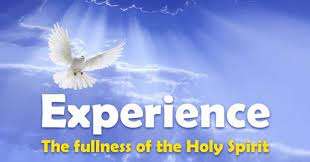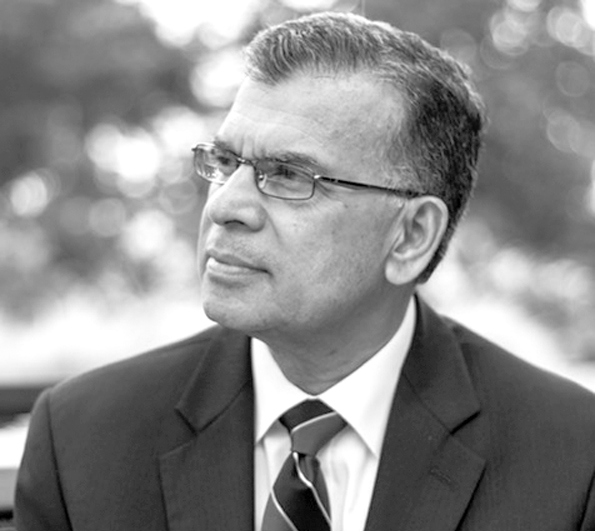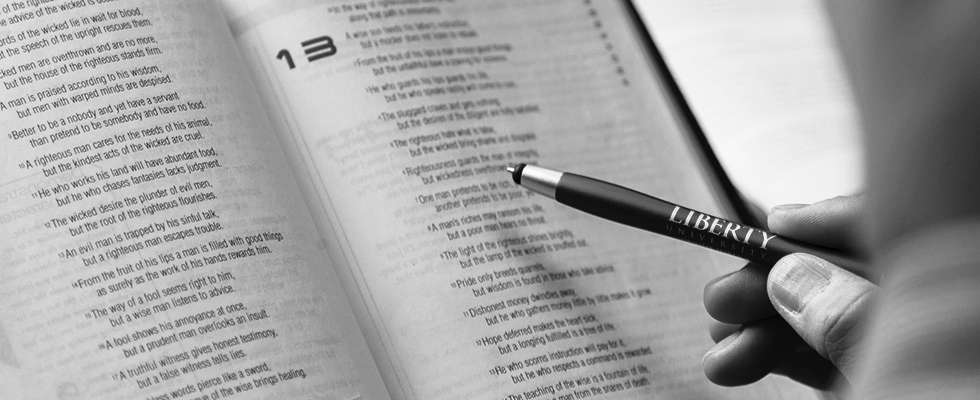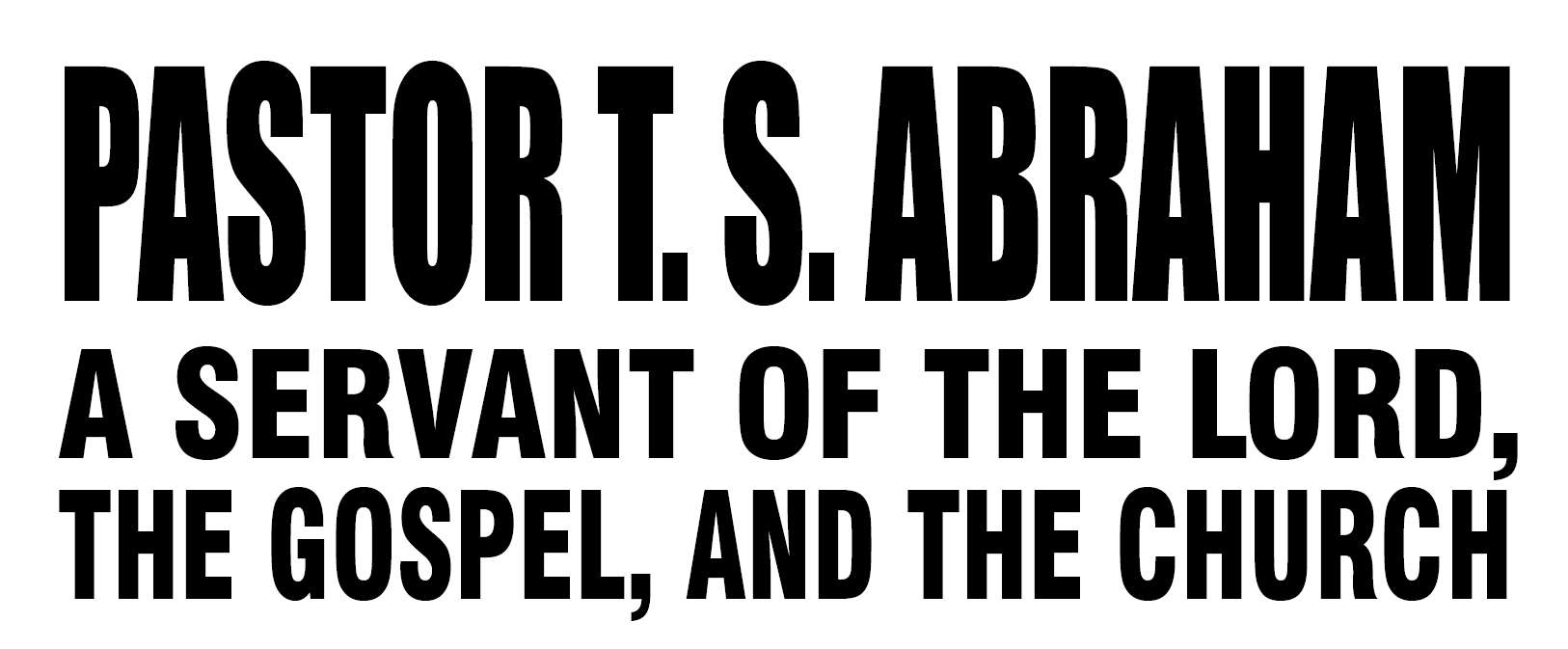

Forward to Fullness of the Spirit: A Call to Pentecostal Living in the 21st Century
Dr. Thomson K. Mathew
Being a Pentecostal is fashionable now! But there was a time when Pentecostals were considered poor, uneducated and out of the main stream of society. This situation has significantly changed. The World Council of Churches is interested in Pentecostalism now. Harvard University has supported research on Pentecostalism. Pentecostals have large gatherings, big institutions, international networks, and educated and economically advanced membership. Political parties are paying attention to Pentecostals. It appears that Pentecostals have reached respectability.
There is nothing wrong in Pentecostalism becoming a progressive movement. It is, in fact, a good idea to adapt to the technology and more efficient ways of the new century. However, the current spiritual situation within the Pentecostal movement needs serious attention. It is not difficult to notice that Pentecost was an experience for the first generation. It became a tradition for the second generation. Unfortunately, for many in the third generation, Pentecost has become a headache!
It is important to ask the question: What is Pentecost? What does it mean to be a Pentecostal? I will suggest four answers to this question.
1. Pentecost is the presence of God with the people of God.
God’s presence was in the garden of Eden. It is noteworthy that in Christian faith, man is not seeking God; He is already in search of the lost mankind. God who was in the garden made His presence known in the wilderness as the people of Israel traveled through the desert. The presence of this same God later manifested in the temple in Jerusalem. Later, we see God’s presence in Jesus of Nazareth in whom the word became flesh to dwell among us. According to 1 Corinthians 3, God’s presence is in His church where two or three are gathered together in Jesus’ name. According to this passage, we who are many are one temple. God dwells in his temple as he dwells among his people. In 1 Corinthians 6, Paul says, “your body is the temple of the Holy Spirit.” God’s presence is in the believer. Early Pentecostals were economically challenged people, but they never considered themselves poor because they knew that they possessed a treasure within their earthen vessels.
2. Pentecost is the power of God released in prayer.
Prayer in one accord started Pentecost (Acts 2:1). First century Pentecostals selected their leaders by prayer (Acts 6:6). Prayer gave them a vision for their mission. Paul received his sight by prayer (Acts 9:11). Peter received his vision regarding the gentiles in prayer (Acts 10:9). The church’s prayer released Peter from prison (Acts 12:5). Paul and Silas experienced God’s power in prison through prayer (Acts16:25). Lydia got converted as the apostles were on their way to prayer (Acts 16:14). They knew the secret: “if my people, who are called by my name, will humble themselves and pray and seek my face and turn from their wicked ways, then I will hear from heaven, and I will forgive their sin and will heal their land” (2 Chron. 7:14).
Prayer released power for the early Pentecostals. Jesus had told them, “All authority in heaven and on earth has been given to me. Therefore go….” (Matthew 28: 18-19). “But you will receive power when the Holy Spirit comes on you; and you will be my witnesses in Jerusalem, and in all Judea and Samaria, and to the ends of the earth” (Acts 1: 8). They experienced supernatural power on the day of Pentecost. Power came to them like a mighty rushing wind (Acts 2: 1-4). The lame man was healed in the name of Jesus by the power of God, enabling him to enter the temple walking and leaping and praising God (Acts 3: 6-8). Prison opened by God’s power (Acts 5: 17-19). Signs and wonders took place in Samaria as God’s power descended there (Acts 8: 5-8). Philip was transported by God’s power (Acts 8: 39). Cornelius was touched by God’s power (Acts 10:30-46). Peter was set free by God’s power (Acts 12: 7-11). A woman which had evil spirits was delivered by God’s power (Acts 16: 18). Paul and Silas witnessed the manifestation of the power God in their prison cell (Acts 16: 26).
What kind of power did they have? First, they had the power of the apostles’ teachings. Truth is powerful. Someone said that truth can be buried only for 3 days! They had the power of holy living. Holiness is powerful! Sinners trembled at the sight of feeble ministers during the early days of modern Pentecostalism. They exercised the power of the name of Jesus. Pioneer Pentecostal songs exalted the name of Jesus. People were saved, healed and set free as they sang. Ultimately, they had the power of the Holy Spirit. Signs and wonders, healing and miracles took place through the power of the Holy Spirit.
3. Pentecost is boldness and courage to face persecution.
Pentecostals were persecuted, but they were bold and courageous. Opposition did not kill their joy or their mission. Look at Acts: Peter was threatened, but nor defeated (Acts 4: 16-21). He was put in prison, but was not silenced (Acts 5: 17-18). Beating actually caused him to rejoice (Acts 5: 40-41). Stephen was stoned, but he looked up and saw Jesus, and his face began to shine (Acts 7: 55-57). James had been killed and Peter was put in prison, but the bold prayer of the church caused his deliverance. His imprisonment did not stop the church from praying and believing (Acts 12: 5-12). Paul and Barnabas were abused, but they refused to accept defeat (Acts 14:5-19). Paul and Silas were thrust into prison; but prison cell could not quench their spirit of prayer and worship (Acts 16: 22-25).
Look at our history: Paul was persecuted. John was banished to Patmos. The Church Fathers suffered persecution. Reformers paid a price. Early Pentecostals were mocked and abused. But they were bold. They had courage. True Pentecost produces boldness!
Pentecostals should not live in fear of the devil. Jesus and the devil are not equal and opposite forces. “Greater is He that is in you than he that is in the world” (I Jn. 4:4).
4. Pentecost is supernatural worship that shakes the foundations of the prison and sets the captives free.
There is deliverance in worship. True Pentecost involves praise and worship. There was praise in the upper room (Acts 2: 1-4). There was praise in the temple (Acts 3:8). The lame man was able to celebrate by walking and leaping and praising God. Abused believers were praising God. They were able to praise God for the privilege of suffering for the sake of Christ (Acts 5:41). Foreigners were praising God (Acts 8:39). Gentile believers were praising God (Acts 10:45-46). The imprisoned apostles were praising God (Acts 16:25).
As Paul and Silas praised God in the unlikely place at an unlikely time, the foundations of the prison began to shake. Their chains fell down. The jailor and his family were saved that night. They were baptized by the apostles. And the jailor washed the apostles’ wounds!
Supernatural worship shakes the foundations of oppressive forces. It causes chains to fall down. It leads people to conversion. Worship leads to washing of wounds. Deep wounds are healed in worship. Reconciliation happens in worship.
It is time for modern Pentecostals to return to true Pentecost. It is time to experience the presence of God. It is the hour to pay the price and see true evangelism taking place. It is time to set the captives free. It is time to see the chains fall off. It is time to experience healing of wounds. And it is time to go forward to the fullness of the Spirit. And to pass on this powerful Pentecost to the next generation!
God is calling us to our roots. He is calling us to true Pentecost. Let us be filled with the Spirit; be led by the Spirit; walk in the Spirit; worship in the Spirit; and take the old Pentecost with us as we go forward.


